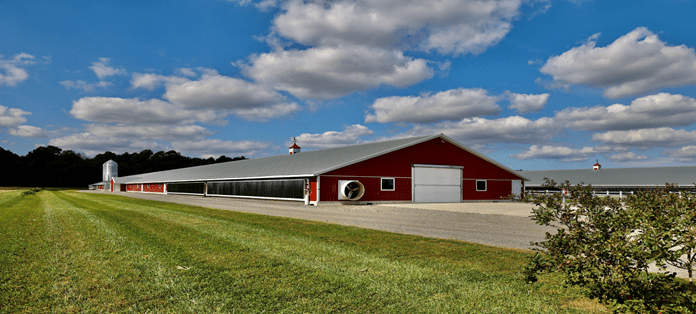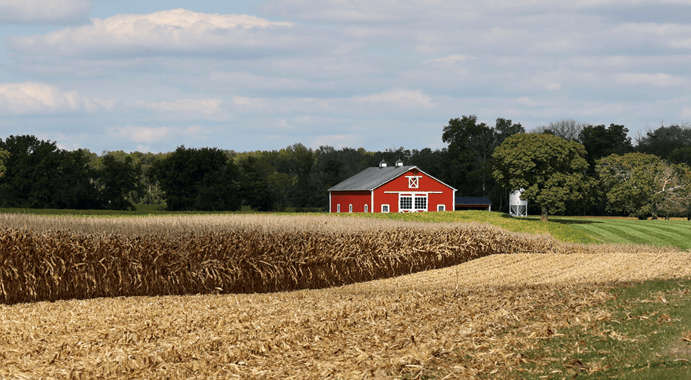North Carolina Court Rejects Challenges to Changes Made to State Right-to-Farm Law
Paul Goeringer, Extension Legal Specialist, Department of Agricultural and Resource Economics, UMD https://www.agrisk.umd.edu/
The end of 2021 saw development on the right-to-farm law front. The Court of Appeals of North Carolina recently rejected arguments that amendments to the state’s right-to-farm law were facially unconstitutional. To the court, the law was not unconstitutional on its face. The decision is in Rural Empowerment Assn. for Community Help v. State.
Background
In 1979, the North Carolina General Assembly enacted the state’s right-to-farm act which provided a defense to nuisance suits that might be brought against agricultural and forestry operations. In response to lawsuits brought against swine farmers, the General Assembly amended the law in 2013 and then again in 2017 and 2018 in response to additional lawsuits brought against the swine industry in federal court.
Plaintiffs brought a facially challenged suit regarding the constitutionality of the recent changes. This challenge was dismissed, and the plaintiffs appealed.
Facial Challenge
Before we look at the court of appeals, we need to discuss what constitutes a facial challenge to a law. A facial challenge, one of the most difficult challenges to bring against a law, is asserting the law is unconstitutional on its face as written. In many cases, courts will refuse to strike down a law as facially unconstitutional if the law can be upheld on any reasonable basis. Another possible avenue to challenge the unconstitutional if the law can be upheld on any reasonable basis. Another possible avenue to challenge the constitutionality of a law is as-applied. With as-applied, you are now arguing that the law is unconstitutional in a specific situation. When arguing as-applied, you are not saying that the law itself is unconstitutional, but that the law is being applied in an unconstitutional manner. In this situation, the plaintiffs only alleged facial challenges, and no as-applied challenges were brought.
Court of Appeals Decision
On appeal at the end of 2021, the plaintiffs argued that the law was unconstitutional in regards to four situations:
1. Violation of private property rights under the law of the land clause of the state’s constitution;
2. Violation of the fundamental right to property;
3. Violation of the local, private, special act restrictions in the state constitution; and
4. Violation of the right to a jury trial.

As we will discuss, the court rejected all four of these situations as possible facial challenges to the revisions to the state’s right-to-farm law.
The Law of the Land Clause states that, “No person shall be taken, imprisoned, or disseized of his freehold, liberties, or privileges, or outlawed, or exiled, or in any manner deprived of his life, liberty, or property, but by the law of the land.” The North Carolina courts have found that this provision is similar to the 14th Amendment in the U.S. Constitution. To determine if a law is unconstitutional, the court typically uses a two-part test. First, the court will consider if the object of the legislation is within the scope of the police power, Second, looking at all the circumstances and particular facts of the case, the court considers whether the government has chosen a reasonable way to regulate.
Applying these tests to the amendments to the state’s right-to-farm law, the court finds that preserving and promoting agriculture and forestry is within the police powers of the State.
In applying the second part of the test, the court has to ask two questions. The first question is, does applying the statute reasonably promote the public good? The court agrees that it is within the bounds of the General Assembly to determine the public and economic policy of the state. The second question is, are the interferences reasonable? The court determines that the amendment’s interferences in property to the state’s right-to-farm law are reasonable. The first facial challenge fails.
The court next turns to arguments that changes to the law would interfere with the fundamental right to use and enjoy property. The plaintiffs highlight a state supreme court decision finding restrictions placed on private property constituted a taking of private property. The court highlights that this decision does not apply in this situation because the plaintiffs have not alleged any governmental taking of private property through the changes to the right-to-farm law. The court rejects the challenge to the fundamental right to private property.
Next, the court considers the argument that the right-to-farm law amendments violate a provision in the state constitution which states “[t]he General Assembly shall not enact any local, private, or special act or resolution: . . . Relating to health, sanitation, and the abatement of nuisances[.]” This provision allows the General Assembly to only enact general laws which apply to the whole State and not special laws only applying to specific individuals, associations, or corporations.
The plaintiffs argue that the provisions only protected the swine industry and were not generally applicable statewide laws. The court disagrees with this, pointing out that the laws are statewide laws of general applicability to all agricultural and forestry operations and those operations can invoke the law’s protections against a suit. The court also rejects this argument.
Lastly, the court turns to arguments made by the plaintiffs that the changes to the law limit a jury’s ability to award compensatory damages, which violates the state’s constitution. The court also rejects this argument because the state courts have long held that the General Assembly can place limits on lawsuits and caps on compensation for damages. Changing the state’s right-to-farm law did not abolish the right to a jury trial; it only placed limits on damages. The court upholds the lower court’s decision.
Plaintiffs still have an opportunity to appeal this decision and it’s unclear if they will at this time. Plaintiffs may also bring a future challenge claiming the law is unconstitutional as applied in a specific situation in which the defense has previously applied. That future challenge could be brought once a specific application of the defense takes place, but as of right now the plaintiffs will have to rely on a facial challenge.
Reference: Rural Empowerment Assn. for Community Help v. State, 2021 WL 6014722, 2021-NCCOA-693 (N.C. App. Dec. 21, 2021).
Back to January 2022 Commercial Poultry News
